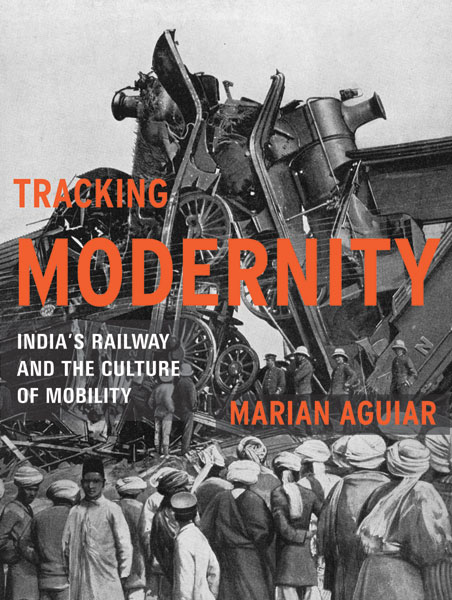From colonial times to contemporary terrorist attacks in Bombay(2008), from Kipling’s short stories to Slumdog Millionaire, from the nineteenth-century organization of mass populations to contemporary investments in mobility and movement, the author manages to reflect on the philosophical implications of the railway’s history, and analyze the cultural work done by images of mobility. This is an important piece of cultural criticism, an excellent model for what interdisciplinary work should look like, and I learned more form it than most academic books.
Amazon review
Landscape in a British Train Running on Colonial India
A book shows how modernity has been dynamic, destructive, and productive in the context of India, especially through trains. Research on post-colonialism, South Asia. and transportation culture history is a key concern of this book. Post-colonialism considers the history of travel, axiom, colonization, and migration part of global power relations. The South Asian study, especially Subaltern, the sub-subject, deals with the debate on the socio-political impact of Western technology. The cultural history of transportation grapples with the nature of the relationship between transportation and cultural change. … This book pairs the narrative of progress and mobility images for conquering, transportations for a symbol of cultural colonization, and conflict for the rupture of the promise of modernity. Mobility is structured as power and becomes a material register that shows who was modern in the colonial hierarchy that equates modernity with civilization in a colonial context.
The Relationship Between Modernity and Mobility in Baliwood
Tracking Modernity expands a new horizon of modernity understanding in two essential ways. Frist, linking mobility and post-colonialism research, this book examines how mobility becomes reproduced and reproducible in the sense of realizing and promoting cultural ideals by interpreting texts focusing on mobility literature and cultural studies. Considering mobility culture as a kind of collective imagination, the book reads colonial desire and post-colonial responses to changing mobility through text analysis, literature, film, media representation, and legal and bureaucratic writings. It interprets the relationship between cultural reproduction and mobility by “tracking the modernity” and the reproduction of train icons of various eras and genres in the Indian subcontinent. Here, railways are objects of imagination that show the surrounding culture, power, and process again. India’s railways are a kind of mobile theater that showcases colonial, national, and finally, global identity.
Second, it recognizes that mobility has a specific post-colonial history and reads mobility through literature and cultural research. Its history clearly shows the relationship between power and mobility as railways entered India as part of the colonial process and are developed as nationalism project, and as they become the site of sectarian violence after division.
India, Culture, and Inequality by Mobility
Tracking mobility in the context of colonization and decolonization, the book extends its understanding of modernity beyond those seeking freedom through movement to talk about those excluded or even deprived of power. The dissemination of the European modernity concept, which includes ideas on modernization history and technology, is essential in understanding modernity in a post-colonialism context. The mobility culture shows that modernity has been dynamic, destructive, and productive in the context of India. In this way, the book contributes to the discussion of alternative modernity “based on cultural specificity and field” in reading modernity. This historical hierarchy of the movement complicates the modern rhetoric of colonialism, secular nationalism, and post-colonialism, which equates mobility and freedom. There is an unequal relationship to movement. England and India, urban and rural, upper and lower classes, men and women. … An unique opportunity to look into the multi-layered inequality and paradoxical power relationships hidden in the modernity embodied by mobility.



